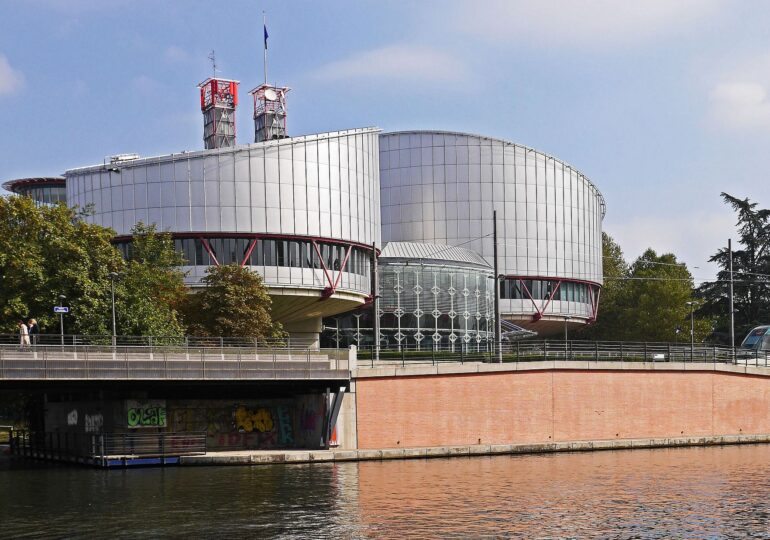The European Court of Human Rights (ECHR) condemned Romania for overturning historic convictions for Holocaust-related crimes, following the retrial and acquittal in the ’90s of two officers who had been convicted for war crimes and crimes against humanity.
The ECHR ruled that Romania must pay the claimants the sum of 8,500 euros as costs and expenses of the trial.
The decision is not final. During the three-month period from its pronouncement, the parties may request the referral of the case to the Grand Chamber of the Court.
History of trials related to war crimes
Leonard Zăicescu and Ana Fălticineanu are Romanian citizens, born in 1927 and 1929, respectively. They live in Bucharest, are Jews, and Holocaust survivors.
The case at the ECHR concerns the retrial and acquittal after the Romanian Revolution (1989) of two officers who had previously been convicted in the 1950s for their involvement, among other things, in the persecution of Romanian Jews in 1941, especially through their participation in the Iași pogrom, of which Leonard Zăicescu is a survivor, as well as by placing a large number of Jews in ghettos, a situation in which both claimants found themselves.
The two officers, identified only by their initials, R.D. (lieutenant colonel and former section chief in the General Staff of the Army) and G.P. (lieutenant colonel under the direct command of R.D.), were convicted by the People's Tribunals, established in 1945 to prosecute and punish the massacre of the Jewish population, notes the ECHR.
After the fall of communism, in the 1990s, several criminal trials related to war crimes were reopened, including those involving R.D. and G.P. (both deceased by then), whose convictions were overturned by the Supreme Court of Justice. The Court acquitted them because they were considered mere executors of orders from their superiors regarding the deportation of Romanian Jews and were not involved in the massacres of Jews, which were allegedly carried out by German troops.
These trials took place in public sessions with legal representatives appointed for the two deceased military personnel.
The files concerning these procedures were kept for several years in the archives of the secret services and later in the archives of the National Council for the Study of the Securitate Archives.
After accidentally learning about the acquittal procedures in 2016, the claimants unsuccessfully tried to gain access to the case files through the courts.
Eventually, they obtained copies of the respective files.
What they claimed at the ECHR
In the application filed with the European Court of Human Rights in 2016, based on Article 3 (prohibition of inhuman or degrading treatment) and Article 8 (right to respect for private and family life), both individually and in conjunction with Article 14 (prohibition of discrimination), the claimants complained that the acquittal of the two military personnel, the conduct of the retrial processes, and the failure to inform them and the general public about the reopening of the procedures deprived them of an effective investigation into the Holocaust and affected their psychological integrity as Holocaust survivors.
Additionally, the claimants complained that the authorities did not consider the anti-Semitic nature of the acts under trial, thus being guilty of discrimination.
Furthermore, the claimants complained about the lack of access to the acquittal files.
ECHR explains why it condemned Romania
In the judgment published on Tuesday, the ECHR essentially established that the reversal of some historic convictions for Holocaust-related crimes, in the absence of a reasonable justification from the Government, caused feelings of vulnerability and humiliation to the victims of the Holocaust.
Additionally, the ECHR found that the reasons cited by the Romanian Supreme Court of Justice in the acquittal judgments of 1998 and 1999 - especially the fact that only German troops carried out actions against Jews on Romanian territory and that R.D. only executed orders from a superior - were excuses or efforts to diminish responsibility and shift blame onto another nation for the Holocaust, contrary to well-established historical facts, all of which are elements of Holocaust denial and distortion.
According to the ECHR judgment, as matters of public interest, the Romanian authorities should have made public the retrials and their outcomes.
Due to this omission, the claimants accidentally learned about the acquittals in question, which may have caused them feelings of vulnerability and humiliation.
The Romanian Government did not provide relevant and sufficient reasons for revising some historic convictions for crimes related to the Holocaust. The acquittals were, therefore, "excessive" and "unnecessary in a democratic society".

